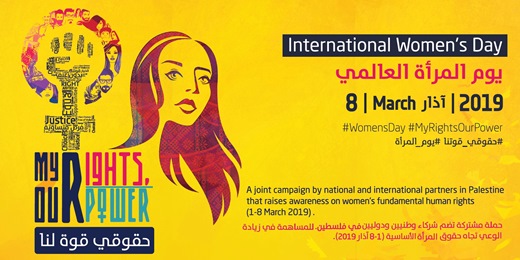Public Statement
AI Index: IOR 41/012/2004 (Public)
News Service No: 080
6 April 2004
Delivered by Peter Splinter
Mr Chair,
In the past three and a half years, since the beginning of the ongoing intifada (uprising) violence and human rights violations have reached a level unprecedented in the 37 years of Israel's occupation of the West Bank and Gaza Strip. The Israeli army has killed more than 2,300 Palestinians , most of them unarmed and including more than 400 children and Palestinian armed groups have killed some 900 Israelis, most of them civilians and including 100 children.
The Israeli army has also destroyed more than 3,000 Palestinian homes, and hundreds of workshops, factories and public buildings, as well as large areas of cultivated land in the Occupied Territories. In the Gaza Strip alone, one of the most densely populated areas in the world, more than 10 percent of the agricultural land has been destroyed. In his 2003 annual report UNRWA's Commissioner-General, commenting on the rhythm of destruction of refugee homes in the Gaza Strip, noted that UNRWA "was not able to keep up with the pace of shelter destruction". The extent of the destruction has left tens of thousands of Palestinians homeless and/or destitute.
Increasingly stringent restrictions imposed by the Israeli army on the movement of Palestinians within the Occupied Territories have curtailed their access to work, education and medical care. As a result, poverty and unemployment have spiralled. Two thirds of Palestinians now live below the poverty line and malnutrition and other health problems are spreading.
The humanitarian crisis has been exacerbated by the construction of a fence/wall large parts of which lie within the West Bank, as documented by the Commission's Special Rapporteur. Israel claims that the fence/wall is intended to prevent entry into Israel to Palestinian suicide bombers and other attackers. However, most of the fence/wall is being constructed inside the West Bank -- not on the Green Line between Israel and the West Bank.
Close to 90% of the route of the fence/wall runs through the West Bank, encircling Palestinian towns and villages and cutting off communities and families from each other, separating Palestinians from their land and their places of work, education and health care facilities. The route of this fence/wall has been designed so as to encompass more than 60 Israeli settlements, comprising approximately 80 percent of Israeli settlers in the Occupied Territories. The international community has long recognized the unlawfulness of the Israeli settlements in the Occupied Territories.
In its current location the fence/wall causes extreme hardship to a large number of Palestinians. Sections completed to date have already had very serious consequences for tens of thousands of Palestinians who live in the affected areas, confined to enclaves encircled by the fence/wall and cut off from the rest of the West Bank.
Israel's legitimate need to secure its borders and prevent access to people who may constitute a threat to its security do not justify the building of such a fence/wall inside the Occupied Territories. Security measures which comply with international law, including the building of a fence/wall, could be taken on Israeli territory.
Mr Chair,
In recent years, the Commission has repeatedly expressed its concern about the deterioration of the human rights situation in Israel and the Occupied Territories. Israel, however, has consistently failed to implement the Commission's resolutions and cooperate with its mechanisms. Words of concern and condemnation sound increasingly hollow in the face of the inaction of the international community.
The Commission collectively and member states individually have a responsibility to take measures to ensure that the Israeli and Palestinian sides comply with their obligations to abide by international law and respect fundamental rights. Disregarding or subordinating human rights and respect for international law to political considerations has brought neither peace nor security.
The concerns arising from the current situation in Israel and the Occupied Territories must be addressed within the framework of international law. A crucial factor in the collapse of previous peace initiatives, including the recent 'Roadmap' has been their failure to address key human rights issues. A human rights agenda alone may not be sufficient, but it must be a central part of any solution to the conflict.
The international community must also act to support Israelis and Palestinians who refuse to participate in violations and who are taking courageous steps to promote justice and human rights.
Thank you Mr. Chair.





